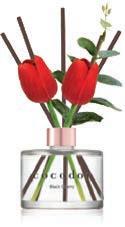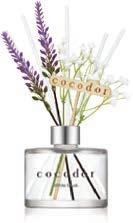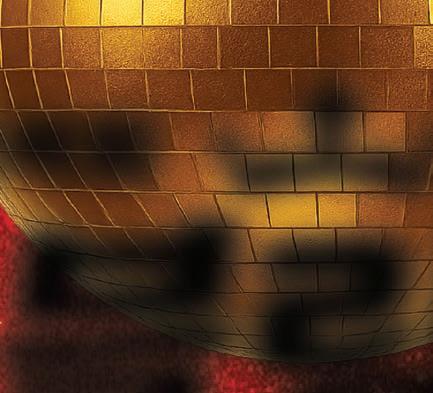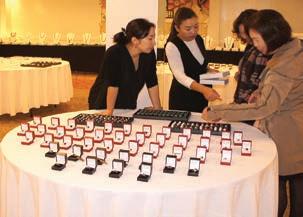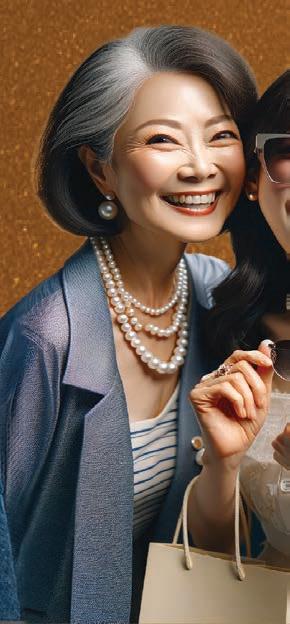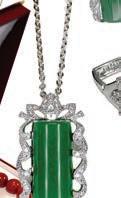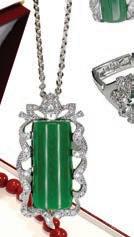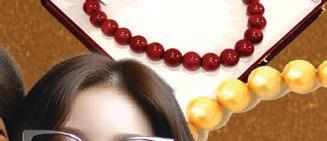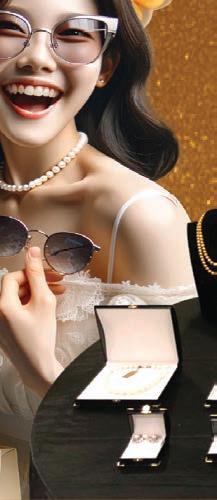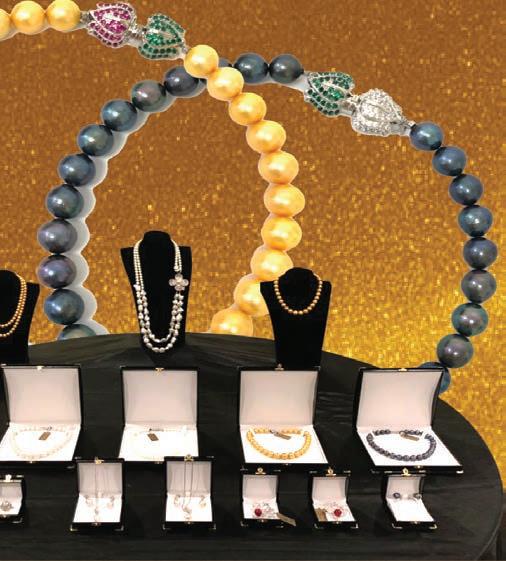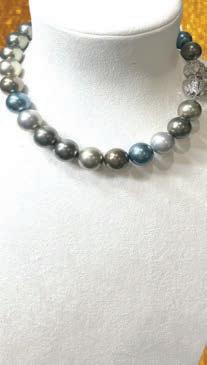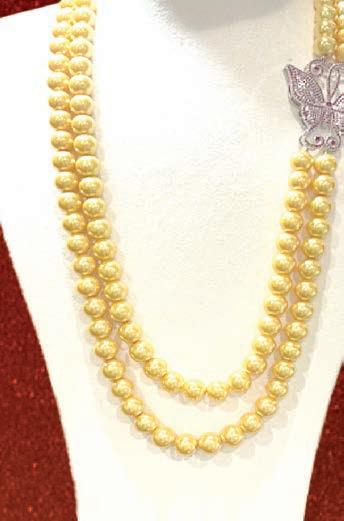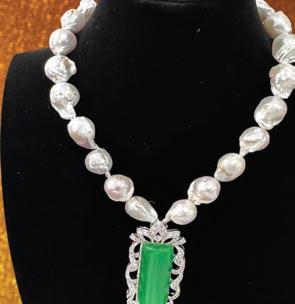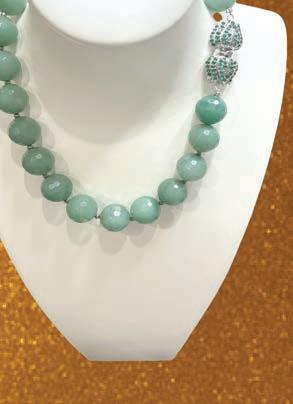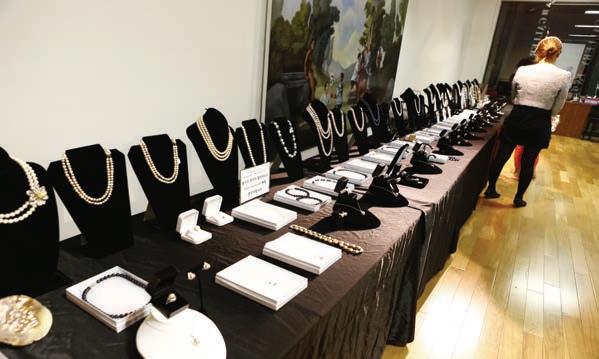
체 중에서는 유일하게 더나눔하
우스에 입소해 있는‘돌봄이 필요
한 이웃’을 향한 애틋한 마음을
전했다.
더나눔하우스 대표 박성원 목
사는“더나눔하우스는 지금은 약
하지만 작은 손 내밈만으로도 다
시 설 수 있는 돌봄이웃을‘돕는
대상’이 아닌,‘함께 살아가는 이
웃이자 친구, 가족’으로 생각하고 있다. 따라서 이들의 회복은 궁극
적으로 건강한 공동체를 회복하
고자 하는 운동이다. 한 사람의
회복은 한 가정의 회복이고, 결국
한 사회의 회복이다.”고 말했다.
박 목사는“갑작스러운 질병이
나 사고, 실직, 가족 해체 등으로
인해 일상적인 삶을 유지하기 어
려운 상황에 처한 이들과 노숙인, 독거노인, 장애인, 서류미비자, 정
신적·정서적 질환으로 고립된
사람들이 자립과 회복의 여정에
한인사회의 배려와 관심이 절실 하다.”고 말했다. 더나눔하우스는 뉴욕 플러싱
비영리단체로, 위기에
돌봄이웃들에게 의식주를 제공할 뿐만 아니라, 병원 방문 동
행, 응급 상황 대응, 자립 훈련, 재
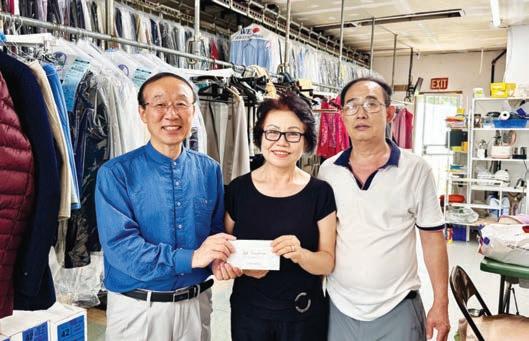
활 및 회복 프로그램, 한국으로의 영구 귀국 등 전인적인 지원을 제
공하고 있다. 특히 더나눔하우스
는 단순한 쉘터를 넘어, 입소자들 의 자립을 위해 다양한 프로그램 과 구직 활동까지 적극 지원하는 미주 내 드문 기관으로 평가받고 있다.
그러나 최근 더나눔하우스는
건물 매입 이후 후원금이 급격히 줄어든 상황에서 25명의 입소자를 돌보며 재정적인 어려움을 겪고 있다.
이에 더나눔하우스는‘1인 1구
좌 메월 20딜러’정기 후원자를 모 집 중이며, 한인 커뮤니티의 따뜻 한 관심과 참여를 호소하고 있다.
박성원 목사는“우리는 너무도
쉽게 눈을 감고 귀를 닫지만, 주변
을 조금만 돌아보면 우리의 도움
이 절실한 이웃이 곳곳에 있다”며
“더나눔하우스가 재정 위기를 극
복하고, 더 많은 사람들의 삶을 회
복시키는 통로가 될 수 있도록 한
인 동포들의 협력과 정기 후원이
절실하다”고 강조했다.
◆후원하는 방법
△우편송금(Send Check)
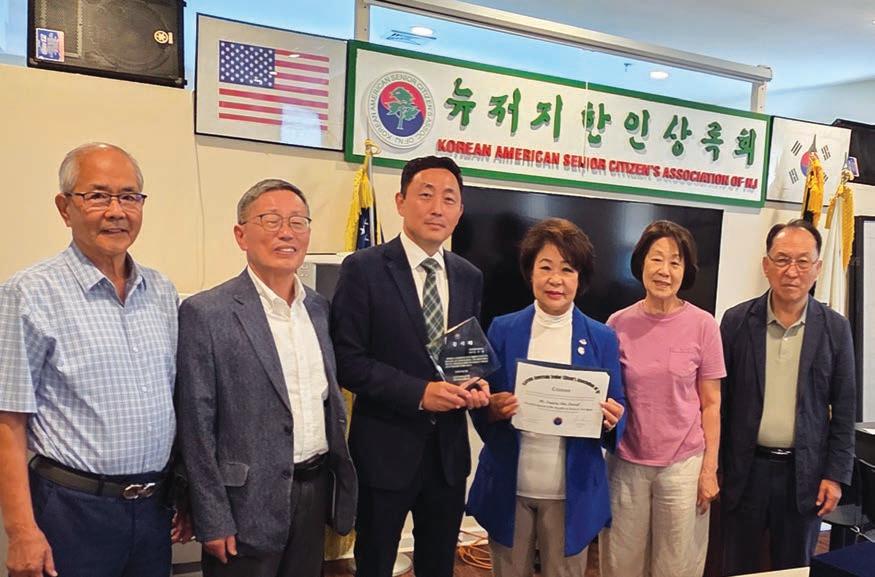
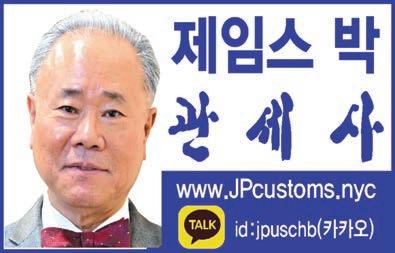


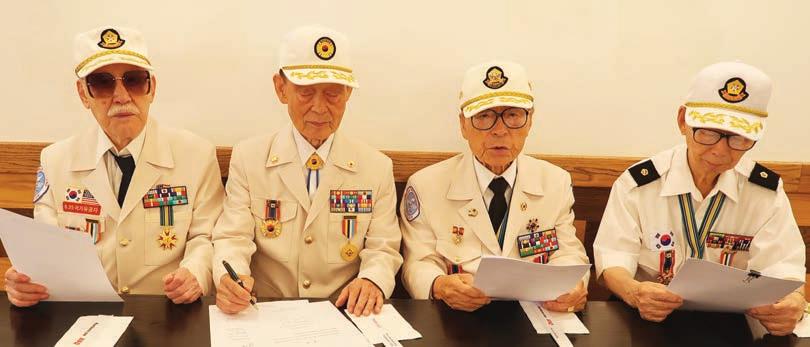
AmericanaManhasset, RitaCastagna회장 과 CathyCastagna대표는 24일 LongIsland ConservatoryofMusic김민선 학장에게 국 제 음악대회와 재단
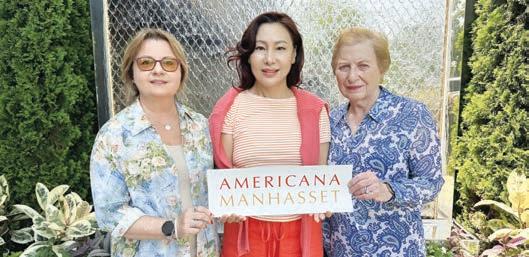
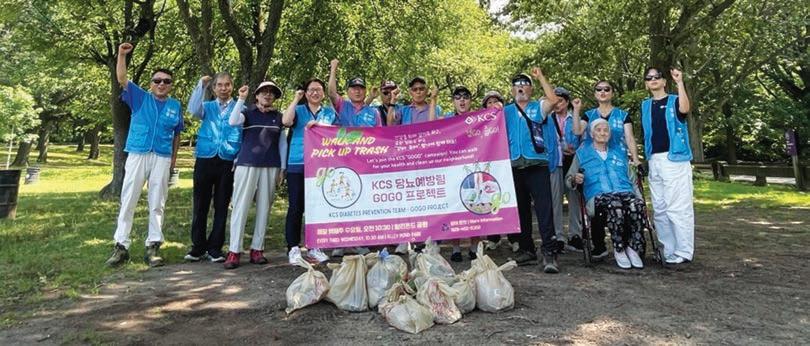
“건강
셋째주 수요일 오전 10시30분 퀸즈에 있는 알리폰드 공원에서 걷
겸하눈“걷고(GO), 줍고(GO)- GOGO 프로젝트”를 진행하고 있다. 7월 행사는 16일(수) 실시했다. KCS는“신
“KCS본관건물
봉사센터 (Korean Community Services of New York, KCS)는 203-05 32 Ave Queens NY 11361에 위치하 고 있는 본관 건물의 서쪽 부분 (western wing)의 외부(지붕, 조 적 공사 포함) 및 건물 내부 (MEPF 포함) 보수공사를 수행 할 종합 건설업체(General Contr actor)를 찾기 위해 입찰을 8월 중 진행 한다. KCS는“입찰 서류는 자격요건을 갖춘 건설업체에 제 공한다. 동종공사 경험과 뉴욕시 에서 자금을 지원 받은 공사 경험 유무가 중요한
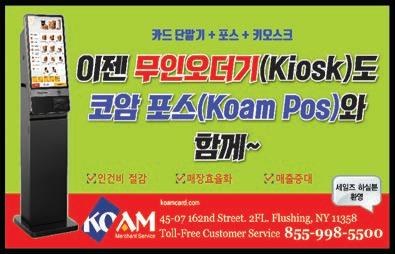




“미국에서 자라나는 청소년들
에게 우리 한국의 역사와 문화, 인 물을 공부하게 하여 한국에 대한
올바른 인식과 자긍심을 갖게 함
으로써 한인으로서의 정체성을 더
크게 길러주자”
대뉴욕지구 경기여고동창회
(회장 강용진) 산하, 경운장학회
■ 3등상-2
(회장 곽인영)는 2025년 5월 3일 (토) 오후 1시(미 동부시간) 맨해 튼에 있는 코리아 소사이어티에서 제15회 영어웅변대회를 화상 및
대면 하이브리드(hybrid)로 개최 했다. 올해 주제는‘내가 경험한 한국문화(Korean Culture: My Experience)’였다.
참가 대상은 미 전역에 거주하 는 9학년부터 12학년의 한국계, 미 국인 또는 다민족 고등학생으로 신분에 관계없이 누구나 참여할 수 있었다. 참가희망자는‘내가 경 험한 한국문화’를 주제로 영어 글 자수 1,400자 내, 웅변길이는 4-6 분의 원고를 작성하여 경운장학회
Food, Family, andFlavor: WhereKoreanandJamaicanCulturesMeet “가족은 삶의 뿌리이고, 전통은 그 뿌리에서 자라는 나무와 같다.”
JordanSligh[PalosVerdesPeninsulaHS, CA]
My first real exposure to Korean culture was the day an H Mart came to my neighborhood. Having asked Mom and Dad for months to take me and eventually convincing them to stop worrying that they would be unable to make sense of any food labels or aisle signs, we finally bundled up and went. The first thing I noticed upon entering the store was the signage in Korean. When I was a child, I had always wished that someday I would be able to speak another language, and thus far, I had learned that Korean writing was different, with circular characters setting it apart from other writing. We then spent time exploring the colorful rows of packaging and the fresh produce area. We continued on to the back of the store where a crowd had congregated around a tank of deep red lobsters. My mom turned to my dad and said we should get one; they both loved lobster, and it was pretty cheap. We waited in the long line to order, assuming at least the lobsters needed to be washed and prepared. A few minutes later, they called our number, and we walked up to only be handed a live lobster in a plastic bag.
As I’ve learned more about Korean culture, both through the language classes I’ve taken in high school and its increasing presence in global media, I’ve come to recognize three key values that are consistently expressed across all aspects of the culture: love for family and community, respect for traditions, and a deep appreciation for both cultural and culinary flavors.
Growing up, culture played a central role in my family’s life. My mother was born and raised in the UK, but with Jamaican parents, she made sure I knew and loved my roots. She instilled in me such great love and respect for that small yet vibrant Caribbean country from which my family originates. As I learned more about Korean culture, I began to notice many striking similarities between the two. One of the most striking is the great emphasis on family and community. In Korean culture, family is the cornerstone of daily life, with respect for familial ties deeply embedded in the fabric of society. For example, it’s common to see multi-generational households, where grandparents, parents, and children all live under the same roof.
This reflects the idea that family is not just a

biological connection but a source of support, respect, and love.
The Korean concept of jeong(정, 情) - a deep, emotional bond shared between family members and within communities -
로 보내면 경운장학회는 원고를 심사하여 결선 진출자를 선정하 고, 결선 진출자들은 장학회가 진 행하는 스피치 워크샵을 통해 스 피치 코칭을 받은 후, 5월 3일 본선 에서 경합했다. 이번 대회에는 미 전역에서 9학년부터 12학년의 한 국계와 비한국계 고등학생 70여
명이 원고를 제출, 13명이 결선에 진출했다. 경운장학회 관계자들은 “대회를 거듭할수룩 한국에 대해 올바를 인식을 갖게하는 등 교육 적 효과가 크다. 우리 학생들이 학 교에서 배우지 못하는 한국의 역 사, 문화, 상황, 인물, 디아스포라 (전 세계에 진출해 살고 있는 한인 들)을 스스로 공부하는 과정에서 한국에
had toward each other were evident with every meal shared, every joke, and every conversation. These are moments that, as a Jamaican, I know are crucial in the family and find resonance in Korean culture.
Food and the act of eating are significant to Koreans, much like they are to Jamaicans. From the bright colors and flavors of kimchi to the complex spicy and savory components of nearly every Korean dish, food is culture, history, and identity. I like that, much like the Jamaican way with bold flavors and heat, it is about seasoning up a memory; Korean food is also strong on flavor that connects one to the land, people, and stories behind a culture. And I have felt that this love for food was actually not about how something tastes, but also about sharing with others The food in Korea, much like in Jamaica, is eaten around a table with many sharing the meal and participating in it. What perhaps strikes most is the persistence of these values in modern Korean
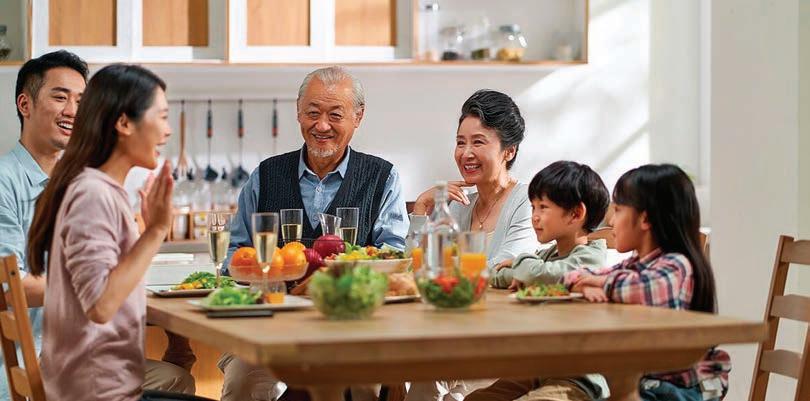
“… Thisreflectstheideathatfamilyisnotjustabiologicalconnectionbutasourceofsupport, respect, andlove. TheKoreanconceptof jeong- adeep, emotionalbondsharedbetweenfamilymembersandwithincommunities- remindsmeofthedeepsenseofconnectionI havealwaysfeltinmyownfamily. Asstatedinthearticle“Jeong: TheKoreanConceptofLoveandAffection’inthemagazineKorean CultureReview:“Jeongistheemotionalgluethatbindsindividualswithinthefamilyandcommunity, manifestingitselfasaffection, loyalty, andrespectextendingfarbeyondmerebloodrelations”
reminds me of the deep sense of connection I have always felt in my own family. As stated in the article “Jeong: The Korean Concept of Love and Affection’ in the magazine Korean Culture Review: “Jeong is the emotional glue that binds individuals within the family and community, manifesting itself as affection, loyalty, and respect extending far beyond mere blood relations” (Lee, 2011).
Growing up in a Jamaican household, I observed a similar commitment to family. Sunday dinners were always a big deal at our house. It wasn't about the food; it was about the family gathering, from grandparents down to cousins, around a table. The love and respect we
culture amidst globalization and the accelerated rate of technological advancement. “South Korea is recognized as one of the fastest adopters of advanced technology, with the country consistently ranking at the top in global indices for internet speed, digital connectivity, and innovation”(Lee, 2021). The respect for elders, family honor, and respect for food and community did not die out; they have only been adapted and molded into modern Korean society. “In contemporary Korean society, the values of respect for elders, family honor, and community still form the bedrock of social interaction, albeit expressed through modern structures, technological advancements, and the
evolving global context” states The Seoul University Press (Choi, 2014). The concept of Jeong(정, 情) is yet again prevalent in this aspect too.
Now, when I think about why these traditions, values, and thoughts are still part of modern Korean culture, it is as if they have been inextricably interwoven into the very fabric of what it means to be Korean. Much more than actions or practices, they form the emotional and spiritual backbone of the community. These values provide a sense of identity, stability, and belonging in these changing times. For instance, respect for elders within Korean culture is not only a question of tradition, but it is one of recognition for the wisdom and experience they bring into society. Within a world that so often has cut us off from our moorings, these traditions provide an anchor toward continuity and belonging.
As for how it affects me in terms of these values, each of the Jamaican and Korean cultures has influenced my perception of life. I was taught from a very young age: family is first, elders are to be respected, and there is no feeling quite like sitting down for a good meal with those whom you love. These are lessons above culture and geography. They help me make sense of my identity as a Jamaican in a very diversified world and to value the beauty and intricacies that cultures different from mine hold. For Koreans, on the other hand, these are the values that make bonding in unity as much as the world contracts into a global village. In modern Korea today, we observe a society that is at once forward-looking and yet tied strongly to its aditional ethos. These values dictate everything—from the way a family interacts to how food is prepared to how social interactions take place. Even the modern Korean workplace, so apparently frenetic and cutthroat, operates deeply connected with deference for the hierarchical order and cooperative virtues reminiscent of those coming from traditional family interaction.
In the end, family, tradition, and food are cherished as beautiful aspects in both Jamaican and Korean cultures. Such proximity between two faraway cultures simply attests that values of love for family, respect for tradition, and a passion for flavor transcend borders. These shared values continue to thrive - constantly adapting, evolving, yet steadfast in their ways of shaping our lives and our communities. Whether it’s through a Jamaican Sunday dinner or a Korean family gathering, it’s clear that food, family, and respect are the ties that bind. They remind us that no matter where we come from, or what language we speak, we all have something to celebrate, and something to pass on.





















































































































